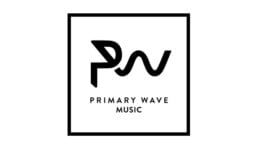Deep-pockets and big ideas have spurred independent publisher Primary Wave to make plenty of headlines and, well, waves in the last few years, chiefly through a series of significant acquisitions.
Its biggest move this year was a $50m deal with Chris Blackwell, which saw the firm buy-up two of the Island Records founder’s publishing interests: the Bob Marley catalogue and Blue Mountain Music.
Blue Mountain is home to several reggae greats (Toots & The Maytals, The Congos, Burning Spear, Black Uhuru), as well as artists such as Free, John Martyn and Marianne Faithful.
The deal resulted in the creation of a new venture, Blue Mountain/Primary Wave Music, of which Primary is believed to own around 80% – although in the case of Marley’s songs, the reggae legend’s estate retains a majority interest.
Primary Wave CEO Larry Mestel (pictured) was well placed to seal the deal, having started his career in recorded music, in 1989, working for Blackwell at Island for 11 years.
Mestel then went to work for L.A. Reid at Arista Records, before heading to Virgin in 2004.
Two years later, he made the momentous decision not just to strike out on his own, but to do so in the world of publishing rather than records.
He explains: “I started Primary Wave with a different spin and a different vision to what most publishers do. Most publishers concentrate on administration and collection; marketing and brand-building, that’s something labels do.
“Because of that, we saw a big hole in the market [publishers with in-house marketing expertise] – and we still do.
“So, my first hire was a senior marketing person who used to work with me at Arista, then I brought in my former head of marketing at Arista and Virgin.
“We brought in recorded music execs, advertising agency execs, video games people, brand people, and we set about building a company that offered a service to these iconic acts – but in the publishing sphere.”
Primary Wave’s first big break came when a mutual acquaintance introduced Mestel to Courtney Love and a deal was soon struck to acquire a chunk of Kurt Cobain’s catalogue – a statement, not to mention template, Primary Wave signing.
The roster was further bolstered by the addition of selected works from writers such as Steven Tyler, John Lennon, Steve Cropper, Lamont Dozier, Hall & Oates, Def Leppard and Maurice White – although in 2013 Primary Wave rolled up a lot of those assets as part of a $150m deal with BMG.
The platform for a second phase of expansion was established in 2016, when Primary Wave received $300m of funding from BlackRock Alternative Investors.
Almost immediately, $22m was plucked from the newly-bulging war chest to acquire an interest in Smokey Robinson’s blue chip catalogue, including My Girl, Tears of a Clown and You Really Got A Hold On Me.
“We have close to $400m of purchasing power [today], with Black Rock being one of a few very high profile, blue chip investors.”
Over the following 12 months, Primary Wave struck a $5m equity deal with Rough Trade Publishing and established a JV with Ceelo Green’s Octopus Publishing.
It also signed Holly Knight, one of the most successful behind-the-scenes female songwriters of the ’80s and ’90s, perhaps most famous for Pat Benatar’s Love Is A Battlefield.
Add in more recent deals for Alice Cooper and Dave Mason, and the firm’s ambition – not to mention its funds – remain plentiful.
“We have close to $400m of purchasing power [today], with Black Rock being one of a few very high profile, blue chip investors,” confirms Mestel.
He adds: “We don’t just have what’s left in the war chest, we also have the ability to tap into additional investment from our partners if we need it.
“We have very significant funds and we don’t plan on running out of capital.”
Mestel insists, however, that, in an environment where a number of heavily-backed independents are looking to hoover up copyrights, cold hard cash isn’t Primary Wave’s main weapon of choice.
“We actually don’t typically get involved in auctions,” he says. “Most other companies do these days, but we tend not to engage, because if an artist doesn’t value the services that we’re providing – if they can’t see that our marketing efforts will help them sell tickets, that our digital team will build their brand, all as part of our service, nothing comes with a surcharge – then we’re probably not the right company for them. We have to be a partner to an artist, not ‘just’ a publisher.
“That’s not to say we’re not competitive, we will pay significant sums for the right deals, but we always do best with artists who want their legacies properly valued and creatively marketed.
“Ultimately, does an artist want the most important assets in their life in the hands of a financial buyer – an investor, essentially – or with someone who is going to care about, market and protect their work.”
Mestel founded Primary Wave midway between the launch of iTunes and the introduction of Spotify.
The company has evolved through the decline of physical, the rise and fall of download and into the age of streaming.
12 turbulent years on, he says: ‘If you look at this business over the next five-10 years, technology is only enhancing our ability to generate revenue and income.
“Aside from marketing opportunities, technology is also opening up emerging markets, like India, China and Russia, which I believe will be a very big part of the future of the music business.”
As a music publisher, Mestel is obviously pleased about the recently-secured 44% rise in streaming mechanical rates in the US – and he’s hopeful that other beneficial licensing changes may follow in the near future.
“We have close to $200m of deals in the pipeline.”
“I think David Israelite and the NMPA have done a spectacular job in terms of representing the industry and getting legislation moving in the right direction for copyright protection,” he says. “Music has never been more popular than it is today and I see nothing but increasing opportunities.”
In the shorter term, Mestel reveals that Primary Wave already has “close to $200m of deals in the pipeline”.
And whilst, naturally, he can’t give any details, he says that “our goal isn’t a number of deals or a number of copyrights [PW still ‘only’ has around 12,000], our goal is to partner with special artists and to then increase their earnings for them”.
More headlines look certain to be generated. More waves are definitely on the way.Music Business Worldwide





